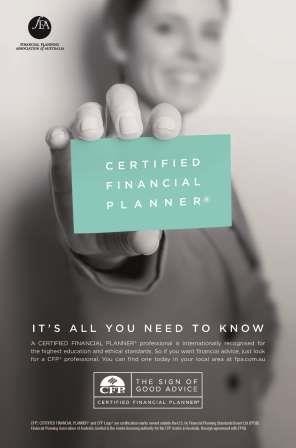
Author: Alex Brown
The role of executor – is it an honour or a burden?
Whilst it may be seen as a gesture of upmost respect to be appointed as the executor of an estate – the role is not for the fainthearted. It carries with it onerous legal and fiduciary responsibilities and a personal liability in the event of any negligent default when carrying out those duties and responsibilities.
So why is it that individual family members, friends of the Will-maker or, in some instances financial advisers, accept an appointment as an executor? And if appointed as executor, what advice have your clients been given to ensure they understand their role and responsibilities?
This article should provide you with an understanding of these duties and responsibilities, to allow you to have a relevant conversation with your client concerning this important role.
The executor's role in simple terms
The executor acts as the legal personal representative of the deceased or, in other words, they 'step into the shoes' of the deceased person.
Some of those duties and responsibilities include:
preserving and protecting all estate assets including business interests and vacant propertyidentifying and collecting all assets and to pay all debts and liabilities including taxationproviding an account of the estate administration, which means detailing all receipts and payments made in the estate and providing this information to the beneficiariesensuring that all beneficiaries receive their proper entitlement under the terms of the Will, within a reasonable time framefinalising all of the income taxation affairs of the deceased up to the date of death, and to lodge any estate trust tax returns for the period following the date of death to finalisation of the estateavoiding any conflict of interest between beneficiaries.
In most situations, an executor will seek the assistance of a legal practitioner or trustee company to assist in the administration of the estate and in carrying out these duties and responsibilities. The advice provided will give some comfort to the executor that they have carried out their responsibilities in the correct manner. But notwithstanding this, an executor will continue to be personally liable in the event of any default. They may have a potential claim against any legal adviser for negligent advice, but who wants to be involved in this sort of action or litigation?
Traps for the unwary
Finalisation of taxation aspects - this can often be tricky. Most legal advisers will simply suggest to a private executor that they need to engage a tax agent to finalise the deceased's taxation affairs but they won't take responsibility for this part of the estate administration. The tax agent must be familiar with the finalisation of deceased estates which in itself is a complex area and needs expert advice. In our experience, the local tax agent, may not always have the necessary expertise.
Transferring assets to beneficiaries
Should assets be sold within the estate or transferred to beneficiaries in-specie?
An 'in-specie' transfer means the ownership of the assets, such as shares or managed funds, are transferred to the beneficiaries without selling the underlying investments.
For all assets transferred in-specie, the executor should provide information to the beneficiaries about the 'cost base' of assets. This is particularly applicable to shares, managed funds and other investments that carry a capital gains tax (CGT) liability. It will also apply to investment properties other than, generally speaking, the principal place of residence of the deceased.
There may be taxation benefits in selling assets whilst the estate is being administered to take up any capital gains or tax losses in the estate rather than transfer that to the beneficiaries. Selling assets within the estate may or may not be the correct decision that an executor should make. Therefore, specialist advice will be strongly recommended in dealing with these often complex issues.
Non-resident beneficiaries – there are significant tax issues if a beneficiary is a non-resident and CGT assets are being transferred to them. Without going into the complexities, there is a deemed disposal of CGT assets when assets are bequeathed to non-residents. Any taxation incurred as a result of that deemed disposal is taxed in the deceased's date of death taxation return and must be accounted for before any distribution occurs.
Correct interpretation of a Will – this is often a concern with older Wills and problematic home-made Wills. A private executor is often appointed to administer these estates. If complications arise, the executor will be embroiled in litigation to resolve any issues or disputes that may occur. Action required of an executor in these instances will generally be time consuming and emotionally draining.
Claims against the estate – We see more and more estates where family members are treated differently in the Will and hence inheritance or family provision claims are made. The executor will necessarily be involved in all litigation which is invariably expensive and divisive amongst family members. The obligations and objectives of an executor are different to those of a beneficiary making (or defending) such a claim, even if the executor is also a beneficiary.
Superannuation – We all know super may or may not fall into the estate, however an executor has a duty to maximise the value of the estate. In many cases this involves making an application to the super fund that any accounts not subject to a binding death benefit nomination are paid into the estate (whether or not they are accompanied by competing applications by family members).
The executor may be required to make submissions to a superannuation trustee as to where the payment should be made or, in the worst case scenario, they may be part of a Superannuation Complaints Tribunal hearing to resolve a dispute. Again, this is very time-consuming even though lawyers may be acting for the executor. In relation to a self-managed super fund, the executor may be required to step into the shoes of the deceased trustee, which we know carries with it further responsibilities and obligations.
In addition, the legislative changes relating to how super death benefits can be treated, which take effect from 1 July 2017, will add further complexities for executors.
Family trusts and private companies – the executor may be required to take on the role of a deceased trustee of a family trust, the role of the appointor of the family trust, or perhaps be appointed as a director of the private family company. The executor then has different obligations not originally contemplated when they accepted the role as an executor.
Executor's commission – an executor is not automatically entitled to claim executor's commission for their time and effort. Any claim for costs need to be approved by the beneficiaries and, if not, an application needs to be made to the Court. A Court will generally allow an executor to be reimbursed for what they refer to as their 'pain and troubles' in acting as executor.
As can be seen from the above, and depending on the circumstances of each estate, the 'simple' executor role can blow out into a range of complexities which were not initially contemplated. Once probate is granted, an executor can't simply resign.
The only way of removing an executor is for the grant of probate to be revoked and a new executor appointed. This is not something that the Courts willingly do. It is far better for a person appointed as executor, if they don't think they will be able to fully attend to their duties, to renounce that role prior to commencing any work in the estate.
Outlined below are some recent examples of estate administration issues that we have encountered at AET.
Case study 1: When grief meets responsibility
Recently, we assisted the elderly parents of a deceased daughter, who left a Will appointing them as executors. Coping with the premature loss of their child, they visited our offices to collect the Will in order to commence winding-up their daughter's affairs.
After struggling with the onerous requirements of superannuation fund trustees and share registries, they called us several weeks later asking for help to 'sort everything out'. They were frustrated and didn't know where to start.
We met with them (and their bundle of papers) and established they had in fact identified most of the assets their daughter held. We then provided a quote to assist them to obtain probate and to wind-up the estate.
We took over management of the estate and within weeks were in a position to apply for probate, which was issued shortly thereafter. Once at-hand, we collected the proceeds of the daughter's bank accounts and arranged to sell her shares, as per the wishes of the family.
In conjunction with their adviser, we were able to identify the most straightforward and cost-effective way of dealing with the daughter's superannuation assets; bringing these into the estate and thus avoiding the need for the parents to recommence lodging personal tax returns of their own, a practice they had long ago ceased.
Case study 2: An independent point-of-view
Several months ago we were appointed executor of an estate which had six beneficiaries, being the deceased's children. We were advised by the family that one of the children, who had access to the deceased's bank accounts, had 'borrowed' a significant (yet unknown) amount of money from the deceased. On top of that, he claimed that the deceased indeed owed him money under a separate, informal agreement.
The family were understandably nervous about how to broach this with their sibling to ensure a fair distribution of the estate, without causing undue conflict or division within the family.
Through an investigation of the deceased's finances, we were able to estimate the amount borrowed by the son, were able to substantiate the amount owed by the deceased to him, and an agreement was soon reached with the family to adjust the son's entitlement to take these loans into account to ensure everyone received a fair amount.
As an independent party without a stake in the overall estate distribution, we were able to present the facts dispassionately and assist in formulating a solution that would not burden the estate with heavy legal costs or disturb the family relationships.
Summary
In discussing your client's estate planning needs, and in particular the role of executor, you and your client should never underestimate what that role will entail.
If your clients have been asked to act as executor for an estate with a complicated family structure or sophisticated asset structure, then this may be a good indicator that the role of an executor is not for them and is more suited to an independent and impartial professional trustee, such as us at AET.
At AET, we offer a professional service 'Executor Assist' to help people who have been appointed as executor under a Will. Whether your client wishes to use Executor Assist just to obtain probate, or to carry out all of their duties as executor, we can provide a quote which is tailored to their needs.
To carry out the specified tasks, all we require is a simple letter of authority to act as your client's agent which is usually supplied following our initial discussion regarding your client's individual situation and requirements.























































